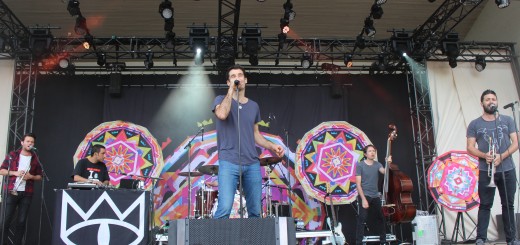The Bachelor Shines Light on North America’s Issues with Race
Reality TV needs to work on being racially inclusive
Sam Ridgway, Staff Writer
Racism is a problem. Can we say that first, please, and say it together? Racism is a problem. It is a problem in the American media we all so greedily consume, it is a problem that appears in even the most casual conversations, it is a problem in the hallways of our own campus.
Racism is not just the use of historically damaging terms, it is an entire system of micro-aggressions and institutional roadblocks working against people of colour on a constant, regular basis.
“Solving” racism is not an easy concept. There are so many things happening in so many different areas that no single thing is a real fix. Despite that, there are so many different things that can be improved as we, as people and as society, improve.
Let’s talk about something ridiculous – let’s talk about reality television. In particular, let’s talk about The Bachelor.
The Bachelor was started by ABC as a competition between a handful of women, each working to “earn” roses week after week and, at the end of the season, get engaged to the bachelor of the year.
Year after year, for the entire 20 season existence of the show, the bachelor himself is a white, ‘all-American’ man, and the bachelorettes are a series of thin, blonde, white women.
Look up for a moment and look around you – do the women passing you all look like blonde supermodels? No? Interesting. It’s almost like that isn’t what the world looks like. Strange. Okay, now continue reading.
As the show has evolved year after year, the producers have introduced an increased number of women of colour. Despite this, no woman of colour has made it past the halfway mark – episode five – in all 20 seasons.
“ABC has so many ethnic shows, and shows with so many ethnic people. Why not take one of the number one ABC shows and make it more diverse?” Leslie Hughes, a Season 17 competitor, said in an interview with The Daily Beast in January 2016.
On Feb. 1 – the first day of Black History Month, actually – the remaining black contestant on the 20th season, war veteran Jubilee, was suddenly told to go home. Not only was she sent home suddenly, but she was essentially sent home for voicing her unhappiness with the way the other girls were treating her. She is not the only participant who has felt this way.
Marshana Ritchie, a woman of colour who competed in Season 12, said that “the majority of the girls really got under my skin for saying racially motivated things.”
Season 17 contestant Robyn Howard said she felt that they kept her “on longer to show that The Bachelor wasn’t getting rid of black people on purpose.”
The producers seem to throw support behind the contestants who have the most audience support, and yet even fan favourites like Jubilee are being routinely sent home early in favour of the bubbly blonde contestants.
“We’re not gonna win this,” Howard went so far as to say in an interview with The Daily Beast in January 2016. “Not just black people, but also everyone who cares about the race issue. We’re not gonna win this.”
Public media needs to fight for equality in a variety of ways, but keeping women of colour on screen for more than a few, racially charged moments in time is a first step. As fans, it is time that we stand up and fight for whitewashing to end, and racism to be cut out of the television shows and movies we know and love.
Hopefully, together, we can take steps towards the media we all deserve.




